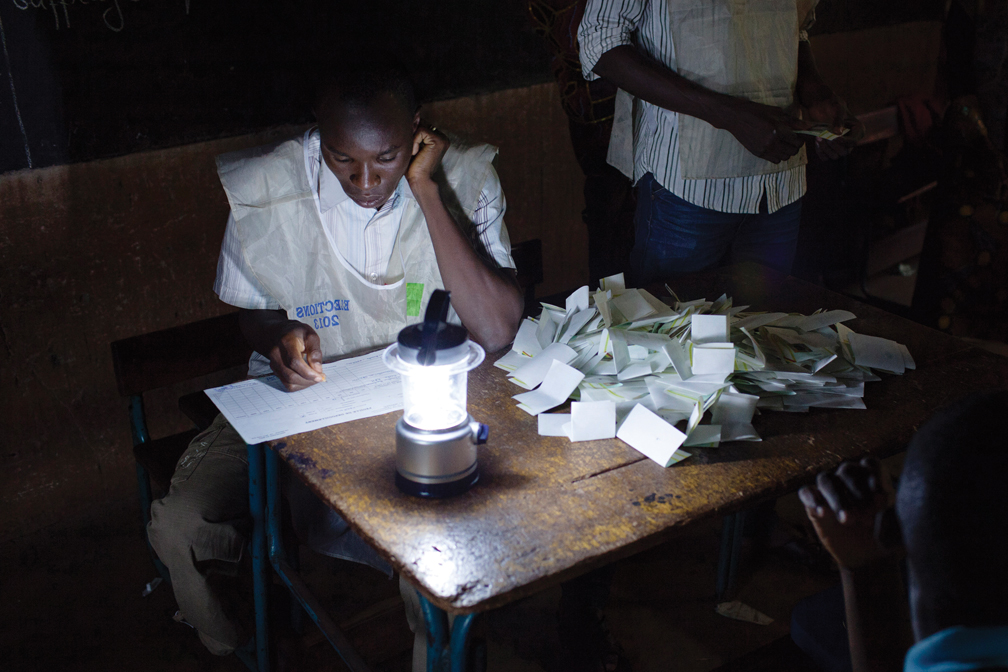ADF STAFF
After more than a year of violence and instability, Malians walked to the polls and cast a vote for a more peaceful future.
The vote in late July 2013 occurred without incident under the cover of heavy security. It was the first election since 2007. When no candidate received a majority, voters went to the polls a second time in August. Former Prime Minister Ibrahim Boubacar Keita, 68, prevailed with 77.6 percent of the vote.
All over the vast Sahel nation, voters queued up to cast ballots. When it was their turn, they stepped into cardboard booths, marked their ballots, and dropped them into plastic bins.
The counting was painstaking in many places. In a one-room schoolhouse in Bamako, poll workers dumped folded paper ballots onto a ramshackle desk and counted by the light of a lantern. Workers filled in forms with ballpoint pens as another scratched hash marks with chalk onto a blackboard.
Heavy rain stifled turnout in Bamako, but in the immediate wake of the voting, observers considered whether the election could serve as an example for all of Africa. Runner-up Soumaila Cissé was honorable in defeat even before final results were announced. He visited Keita’s home in Bamako to congratulate him personally. “President Ibrahim Boubacar Keita has won this election gracefully,” Cissé told Voice of America. “It is my duty to congratulate him.”
Cissé’s conciliatory attitude was appreciated. Taxi driver Boubacar Diarra said the concession could help the country get back on track. “For us, it is really good because if you realize you have been beaten and you go and congratulate the other for his victory, that will make our democracy better,” he told VOA.
Despite the positives, Richard Downie, deputy director of the Africa Program at the Center for Strategic and International Studies, cautioned against an overly optimistic view of the election. “I think the elections are just the first phase [of] what will be a very long process to restore Mali to peace again.”
He said the hard work has just begun for President-elect Keita. The new leader will have to find a way to reassemble Mali’s disparate constituencies in a way that leads to national reconciliation. Keita, for his part, sounded a hopeful note during his campaign.
“For Mali’s honor, I will bring peace and security,” Keita said, according to Agence France-Presse. “I will revive dialogue between all the sons of our nation, and I will gather our people around the values that have built our history: dignity, integrity, courage and hard work.”

